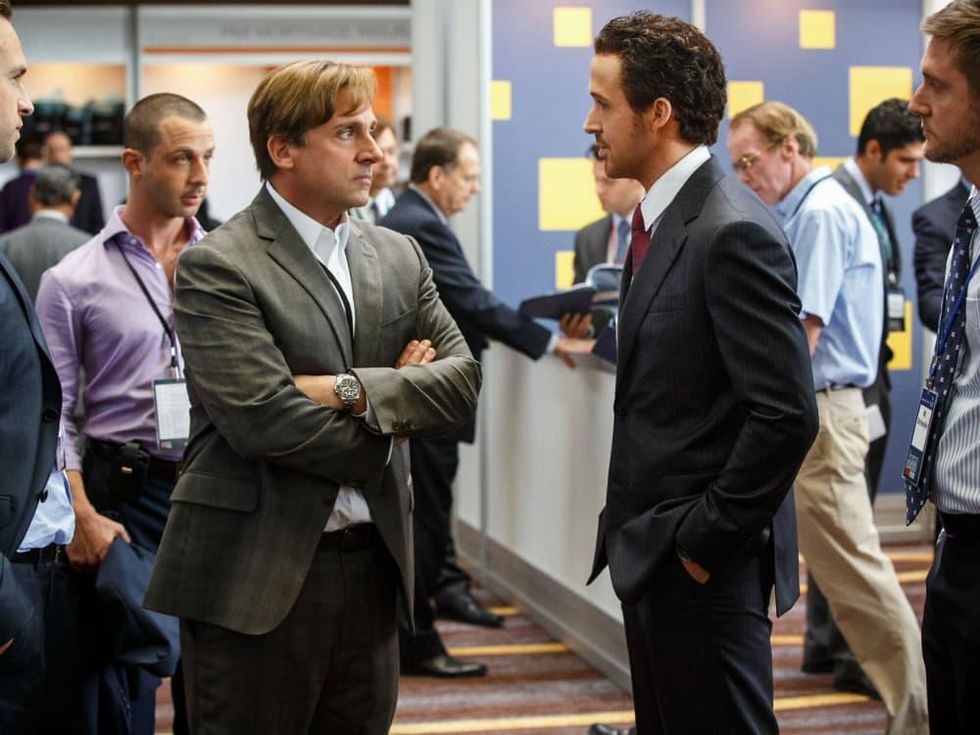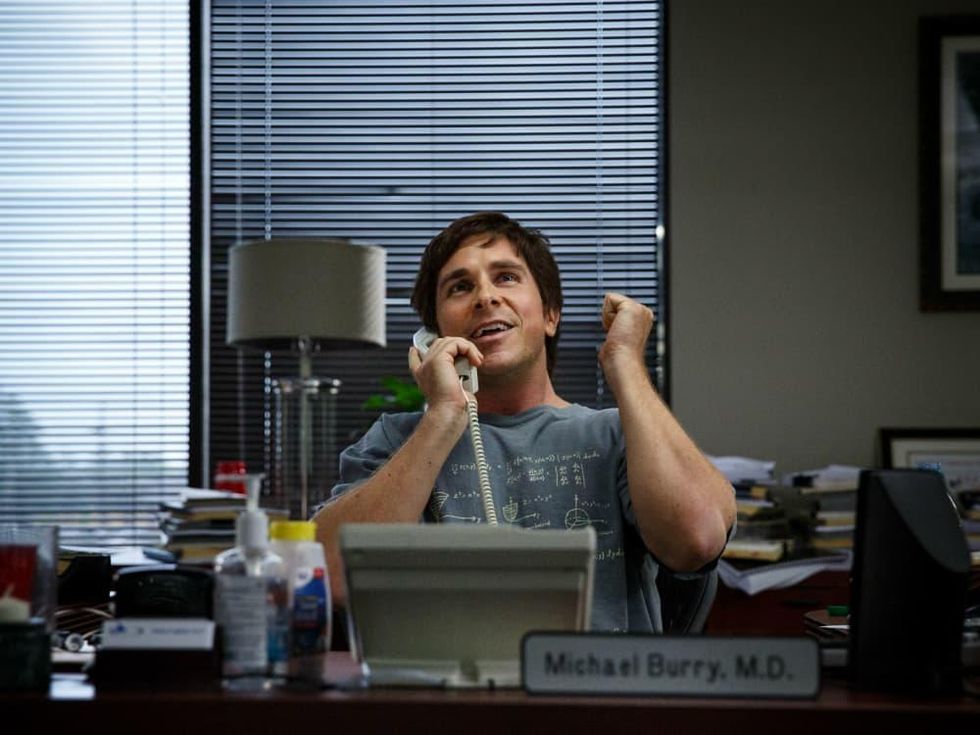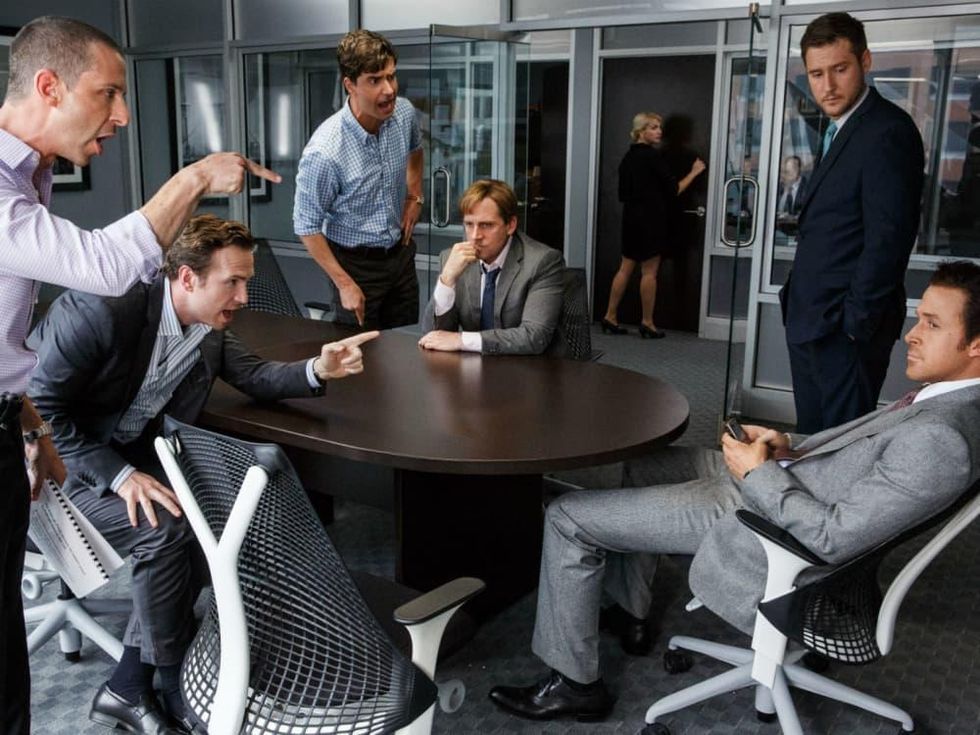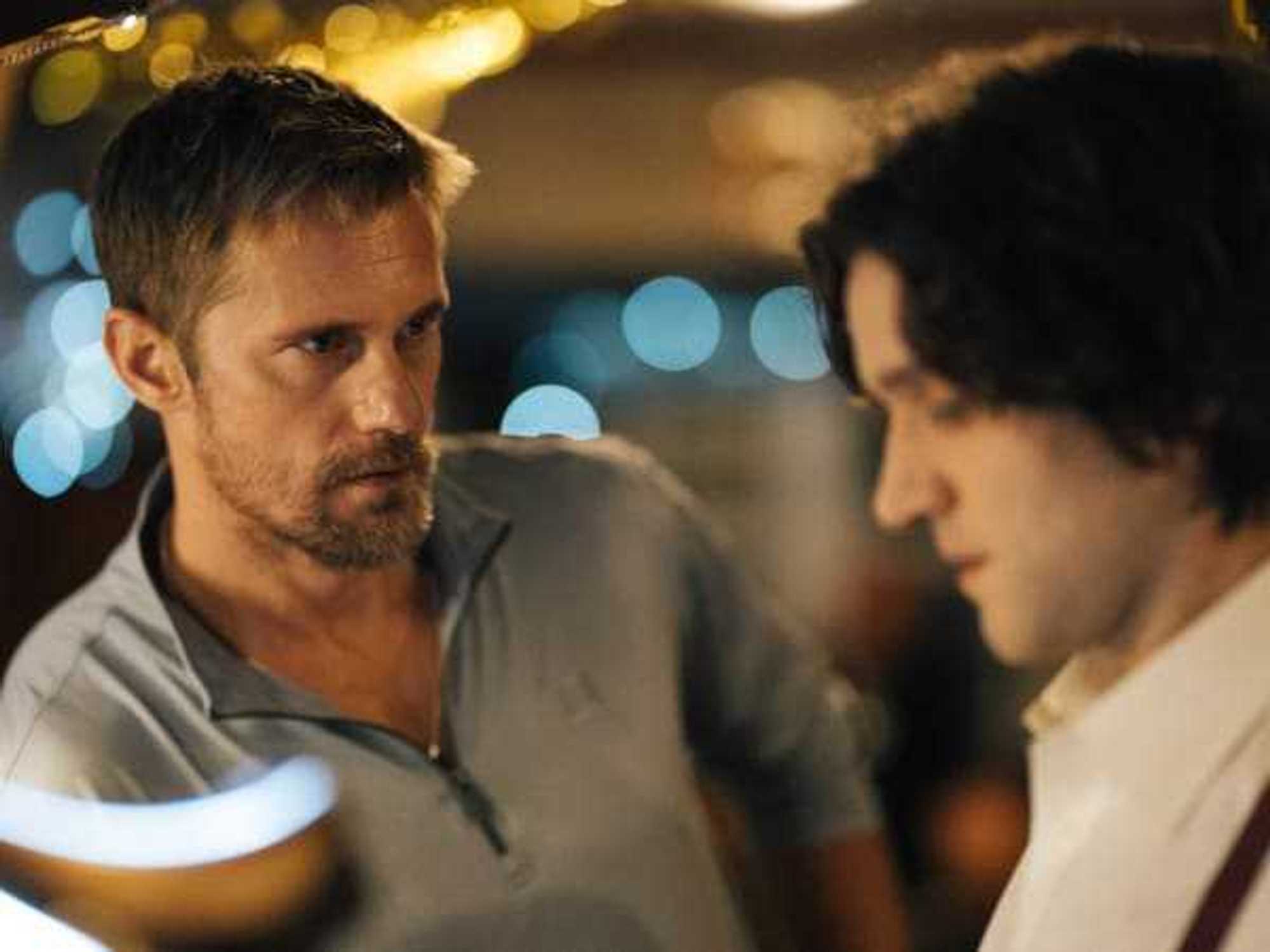On the list of real-life events that most people would not want to relive, much less try to be entertained by, the housing market collapse of 2008 resides near the top. And yet here is The Big Short, directed by comedy filmmaker Adam McKay, attempting to bring a measure of levity to the worst financial crisis any of us hope to ever know.
McKay does so by focusing on three groups of mostly unrelated people in the financial industry who saw the collapse coming and bet many millions of dollars on the idea that it would happen. They include Dr. Michael Burry (Christian Bale), leader of a hedge fund; Mark Baum (Steve Carell) and Jared Vennett (Ryan Gosling), two players on Wall Street; and Ben Rickert (Brad Pitt), a veteran banker who helps two green investors exploit the financial system.
Each of them goes about betting against the housing market, or in financial lingo, “shorting” it, in different ways. Much of the humor of the film comes in how each of them, in the face of much derision, forges forward because of their foresight. At the same time, the situations contain either underlying or overt drama, since them being right means almost certain disaster for the country, if not the world.
McKay and co-writer Charles Randolph know that the details of the financial market can be, to put it mildly, a bit dry. Even though they still use a lot of it because it’s unavoidable, they occasionally make it more interesting by having celebrities like Margot Robbie, Anthony Bourdain, and Selena Gomez break concepts down so that non-experts can understand them.
They inject additional comedy into the proceedings by giving many of the main characters big or quirky personalities, and by saddling each of the stars with ridiculous wigs. Carell and Gosling, previously co-stars in Crazy, Stupid, Love., get to go the most wild, while Bale and Pitt let their absurd hair do the talking for them.
But as entertaining as some of the scenes can be, there’s no escaping the downbeat ending we all know is coming. It’s difficult to root for any of characters’ successes knowing that their gain is our pain. Even though none of them seems to do anything wrong, and some even express remorse about their role in the process, they’re never really “heroes.”
The two big winners, acting-wise, are Carell and Bale, for almost opposite reasons. Carell’s role has more meat to it, as Baum’s incredulity and anger give him a lot to work with. Bale’s role is subtler but just as effective. Special credit should also be given to supporting actors like Rafe Spall, Hamish Linklater, Jeremy Strong, John Magaro, and Finn Wittrock. They each give true support to the stars, setting them up brilliantly time and again.
In its own way, The Big Short is as vital a message movie as has come out in recent years. The downright depressing coda, which shows that almost nothing has changed in the seven years since the start of the crisis, should be a wake-up call for anybody who thinks this could never happen again.




